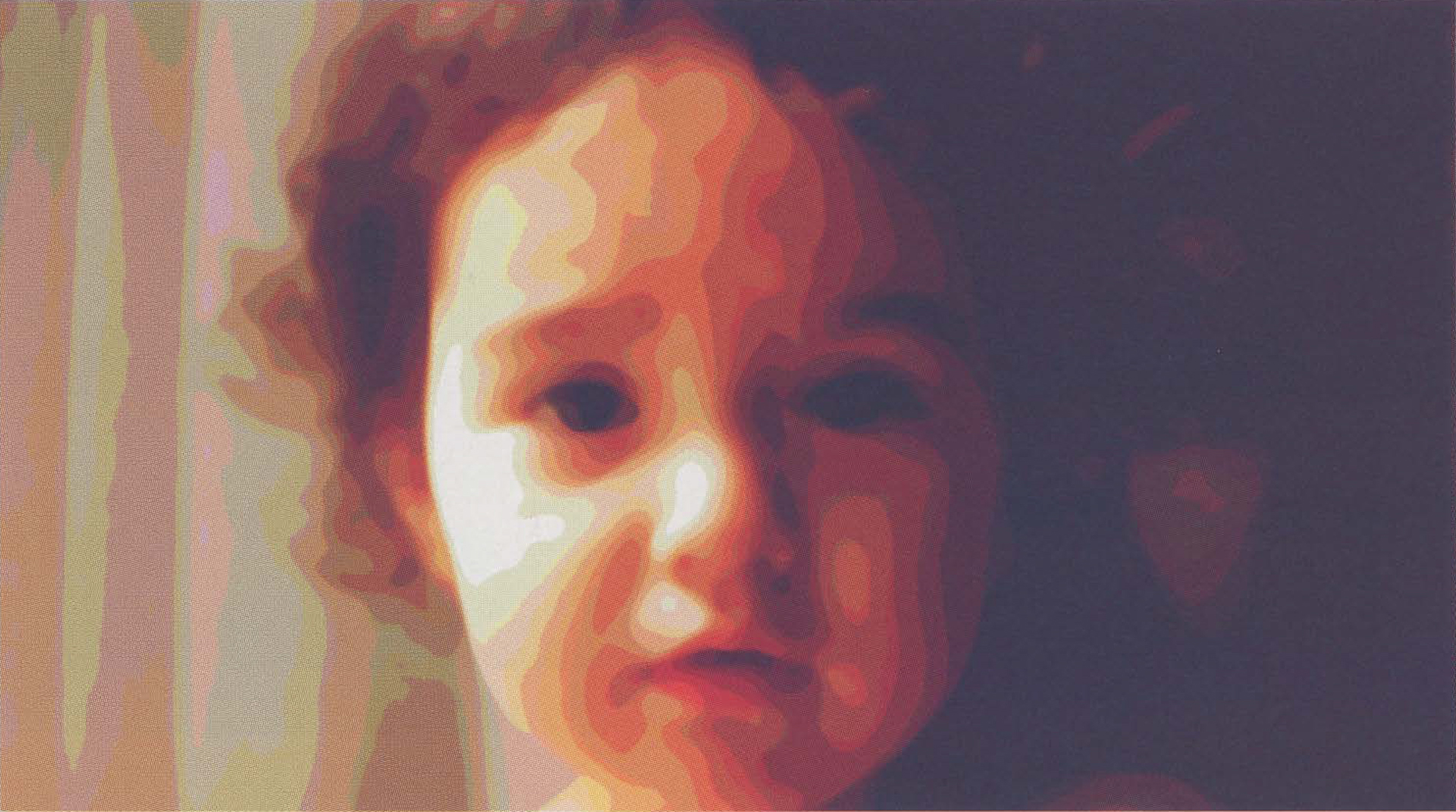Timothy Tompkins: Cassandra
Artist(s):
Title:
- Cassandra
Exhibition:
Creation Year:
- 2002
Medium:
- enamel on aluminum
Size:
- 36 in x 65 in
Category:
Artist Statement:
My paintings reflect a combination of ideas: the materiality of paint and how the viewer perceives the surface, the history of painting as a medium, abstraction, representation, memory, technology, and optimism.
The work is executed on aluminum panels using high-gloss commercial enamels that enhance the liquid qualities of the paint. The liquid state of paint is more evident with enamel paint because when it’s dry, the traced contours of the image I am painting remain. This quality gives a transitory effect to the piece, as if the image is still forming. In addition, I reduce the image to its basic seven or eight colors in an effort to abstract it further. This shift in presentation that occurs between what the actual found image was and what it becomes painted mirrors the way in which our memory recalls personal experiences. I then build up paint onto a stripped-down form so that the painting vacillates between the vagueness of the original image and the specificity caused by the physicality of the paint itself. The gloss enamel is not only a signifier for the material nature of the paint, it is also the vehicle in which the form is represented.
Subject matter for my paintings is taken from the media, found family photographs, or my own set-up photographs. These photographs are then reinterpreted through the computer. By using the photograph as a referent, I am challenging its autonomy. All of my paintings reflect color choices that are made through the computer. This not only affords me the flexibility of an immediate response to?what I am seeing, it also leads to the possibility of unlimited color combinations through the computer color chart. The reliability of the computer in calculating colors is central to the production of the work. Theoretically, the specificity of color that is calculated by the computer is a stand-in for a human observation of how color reacts with form. Digitized color is essentially the “pure” color of an image as interpreted by the computer. I feel that colors filtered through this process somehow relate more closely to the concept or reality of technology infused with contemporary society. It is this reflection of a techno-society that is expressed both metaphorically in the reflection off the enamel surface and in the pureness of color that is filtered through the process of the digital.
The combination of processes in my practice is designed ultimately to feed and create visual pleasure. My own pleasure in creating paintings is manifested in the visual cues of the materials and content of each work. The directness of the experience that one feels in front of a painting, from its object quality to its materials and aesthetic, is unique to the medium. As a form of expression, I find the process of painting challenging in regard to its theoretical considerations. Why paint images from the media, memories, or photographs? It is the challenge of balancing the medium and its history with technology that I find rewarding.






